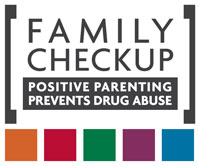Do you encourage positive behavior habits in your teenager on a daily basis?
Encouragement is key to building confidence and a strong sense of self. Consistent encouragement helps youth feel good about themselves and gives them confidence to: try new activities, develop new friendships, explore their creativity, and tackle difficult tasks. It also helps parents promote cooperation and reduce conflict.
Underachievement in school and daily encouragement
- Negative Example: Dad reacts to failure
- Positive Example: Dad builds on success
Encouragement promotes a strong sense of self because it sends three main messages to your child:
Examples of Encouraging Words
- "I know that wasn’t easy."
- "You did such an awesome job."
- "Keep on trying."
- "You are very good at that."
- "You are learning a lot."
- "I like the way you did that."
- "I can tell you’ve been practicing."
- "It’s great to see you working so hard."
- "I’m so proud of you."
You can do it! Youth believe they can do things if parents
- Help them break a problem down into smaller parts
- Remind them of their strengths and past successes
- Encourage them by sharing how they have dealt with challenges
You have good ideas! Youth believe they have good ideas if parents
- Ask them to share their opinions and feelings
- Listen to what they have to say
- Ask them for input concerning family plans and events
- Ask them for ideas to solve family problems
You are important! Youth know they are important if parents
- Remember what they have told you
- Make time for them each day
- Attend school functions and extracurricular activities
- Let them know that you are thinking about them when you can’t be with them
- Display things they have made and recognitions they receive from school or the community
Practices that are Discouraging
- Being sarcastic or negative about your child’s ability to be successful
- Comparing a child to brothers and sisters
- Taking over when a child’s progress is slow
- Reminding your child of past failures
Practice Skills
Video: Praise for Positive Behavior
When giving praise for cooperation:
- Make it simple: “Thank you”
- Do it right away
- Be specific about what you like
- Never miss an opportunity to encourage behavior or acts you would like to see repeated!
Video: Reviewing Behavior Change Plans
When reviewing behavior change plans:
- Check each step of the plan
- Praise positive behaviors
- Give incentives immediately
- Remember to review the plan with your child every day!
Download the PDF

Looking for Treatment?
Use the SAMHSA Treatment Locator or 1-800-662-HELP.
Featured Publication
Drugs, Brains, and Behavior - The Science of Addiction
As a result of scientific research, we know that addiction is a disease that affects both brain and behavior.






